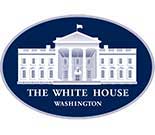|
|
 |
|
The
views expressed
on this page are soley those of the author and do not
necessarily
represent the views of County News Online
|
 |
The White House
Lessons to
learn from Iraq War
This week, critics of the Iran deal -- including Former Vice President
Dick Cheney -- are gathering in Washington.
It's a safe bet that they will call for abandoning our diplomatic deal
with Iran and the world, and call for a dangerously simplistic vision
of American "leadership" based on unilateral action that would
ultimately leave us with a choice between accepting a nuclear Iran or
using military force.
This is no abstract debate. Those, like me, who have served, understand
all too well the sacrifice that is required when diplomacy is
abandoned. I have spent much of my adult life attempting to redeem the
aftermath of a deeply unnecessary and misguided war in Iraq in the name
of non-proliferation. Having served in Iraq myself as an Army officer,
and then worked with Iraqi refugee families facing desperate
circumstances in Syria, Lebanon, and Jordan, I believe we must ask a
simple question of anyone wishing to be taken seriously on matters of
national security today: What have you learned from the Iraq war?
Some, it is clear, have learned disturbingly little.
Some of the same people who supported premature military action in
Iraq, based on faulty intelligence, remain eager to reject tough
diplomacy now. Remarkably, many of them have made clear that they
reject the very idea of negotiating with Iran at all.
We must remember how radical that view truly is.
Presidents from Eisenhower to Nixon to Kennedy, from Reagan to Bush
Sr., knew that sometimes, facing our adversaries across the negotiating
table is a better way to advance our interests, promote our values, and
improve our security than rushing to face them on the battlefield. They
understood that tough, principled diplomacy is a hallmark of our
strength -- and that exhausting diplomatic options before asking our
men and women in uniform to confront the awful face of battle is a
basic responsibility of leadership.
Embracing the use of force as a first option, while rejecting the very
idea of tough negotiations with dangerous countries, is a departure
from our nation's best strategic traditions and most essential moral
values. The costs of that departure have been great, and remain with us
to this day. We who have spent our lives since 9/11 on the front lines
of a dangerous world have learned from our shared experience that
America can -- and must -- do better, and be smarter.
Using tough, principled diplomacy, backed by strength, to reduce the
threat posed by our enemies is one of America's greatest bipartisan
traditions.
This deal with Iran reflects the painful lessons of our recent past,
and represents a higher form of renewed American leadership. America
rallied support for sanctions around the world, forced Iran to the
table, and delivered a tough deal based on verification -- not trust.
If Iran abides by the terms, that leadership will have improved our
security and safeguarded our allies without putting American lives at
risk. If Iran cheats, or threatens our security in other ways, we will
be watching – with every tool of our national power remaining at our
disposal, much better intelligence, and the world committed to standing
with us in our response.
We must remember our essential goal: To prevent Iran from acquiring a
nuclear weapon. This deal accomplishes that goal.
And if Iran does choose conflict, there is nothing in this deal that
gives away the power and resolve of our military, or our commitment to
defend our nation and our allies. Make no mistake. The men and women I
was once privileged to serve alongside will fight and win on any
battlefield our elected civilian leaders may choose. That is their
responsibility. Ours is to learn from painful experience, and choose
with wisdom worthy of their service.
The radical worldview that led to the Iraq War belongs to the past. Our
generation has charted a new course for the future. Embracing tough,
principled diplomacy as a first resort is the best way forward for our
nation and the world.
Thanks for listening,
Mike
Mike Breen
Portsmouth, New Hampshire
|
|
|
|

